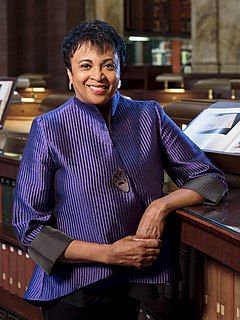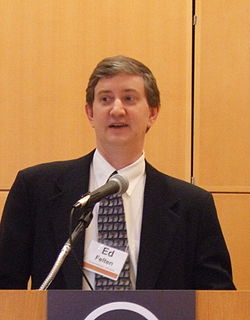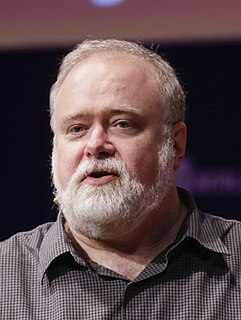A Quote by Desmond Tutu
You don't think we have a copyright to forgiveness, it is done by people everywhere.
Quote Topics
Related Quotes
Under the 1998 Digital Millennium Copyright Act, Tumblr, YouTube, Reddit, WordPress, and Facebook aren't responsible for the copyright infringement of each of their millions of users, so long as they take down specific posts, videos, or images when notified by copyright holders. But copyright holders thought that wasn't good enough.
If a person has done wrong, is conscious of what he has done and does not say sorry, I ask God to take him into account. I forgive him, but he does not receive that forgiveness, he is closed to forgiveness. We must forgive, because we were all forgiven. It is another thing to receive that forgiveness.
The crystal ball has a question mark in its center. There are some fundamental choices to be made. We will either choose to continue to wage a hopeless war to preserve the existing architecture for copyright by upping the stakes and using better weapons to make sure that people respect it. If we do this, public support for copyright will continue to weaken, pushing creativity underground and producing a generation that is alienated from the copyright concept.
Religion is spelled 'D-O', because it consists of the things people do try to somehow gain God's forgiveness and favor. But the problem is that you never know when you've done enough. But thankfully, Christianity is spelled differently. It's spelled 'D-O-N-E', which means that what we could never for ourselves, Christ has already done for us. To become a real Christian is to humbly receive God's gift of forgiveness and to commit to following His leadership.
I think intellectual property is more like land, and copyright violation is more like trespass. Even though you don't take anything away from the landowner when you trespass, most people understand and respect the laws that make it illegal. The real crime in copyright violation is not the making of the copies, it's the expropriation of the creator's right to control the creation.
I think the reality is that copyright law has for a very long time been a tiny little part of American jurisprudence, far removed from traditional First Amendment jurisprudence, and that made sense before the Internet. Now there is an unavoidable link between First Amendment interests and the scope of copyright law. The legal system is recognizing for the first time the extraordinary expanse of copyright regulation and its regulation of ordinary free-speech activities.






































